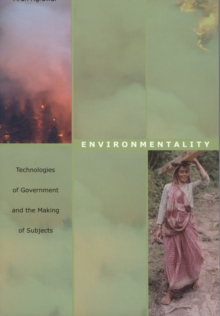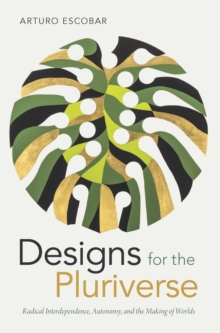
Environmentality : Technologies of Government and the Making of Subjects Hardback
by Arun Agrawal
Part of the New Ecologies for the Twenty-First Century series
Hardback
Description
In Kumaon in northern India, villagers set hundreds of forest fires in the early 1920s, protesting the colonial British state’s regulations to protect the environment.
Yet by the 1990s, they had begun to conserve their forests carefully.
In his innovative historical and political study, Arun Agrawal analyzes this striking transformation.
He describes and explains the emergence of environmental identities and changes in state-locality relations and shows how the two are related.
In so doing, he demonstrates that scholarship on common property, political ecology, and feminist environmentalism can be combined—in an approach he calls environmentality—to better understand changes in conservation efforts.
Such an understanding is relevant far beyond Kumaon: local populations in more than fifty countries are engaged in similar efforts to protect their environmental resources.Agrawal brings environment and development studies, new institutional economics, and Foucauldian theories of power and subjectivity to bear on his ethnographical and historical research.
He visited nearly forty villages in Kumaon, where he assessed the state of village forests, interviewed hundreds of Kumaonis, and examined local records.
Drawing on his extensive fieldwork and archival research, he shows how decentralization strategies change relations between states and localities, community decision makers and common residents, and individuals and the environment.
In exploring these changes and their significance, Agrawal establishes that theories of environmental politics are enriched by attention to the interconnections between power, knowledge, institutions, and subjectivities.
Information
-
Available to Order - This title is available to order, with delivery expected within 2 weeks
- Format:Hardback
- Pages:344 pages, 3 photos, 17 tables, 3 figures
- Publisher:Duke University Press
- Publication Date:06/04/2005
- Category:
- ISBN:9780822334804
Other Formats
- Paperback / softback from £21.75
Information
-
Available to Order - This title is available to order, with delivery expected within 2 weeks
- Format:Hardback
- Pages:344 pages, 3 photos, 17 tables, 3 figures
- Publisher:Duke University Press
- Publication Date:06/04/2005
- Category:
- ISBN:9780822334804










